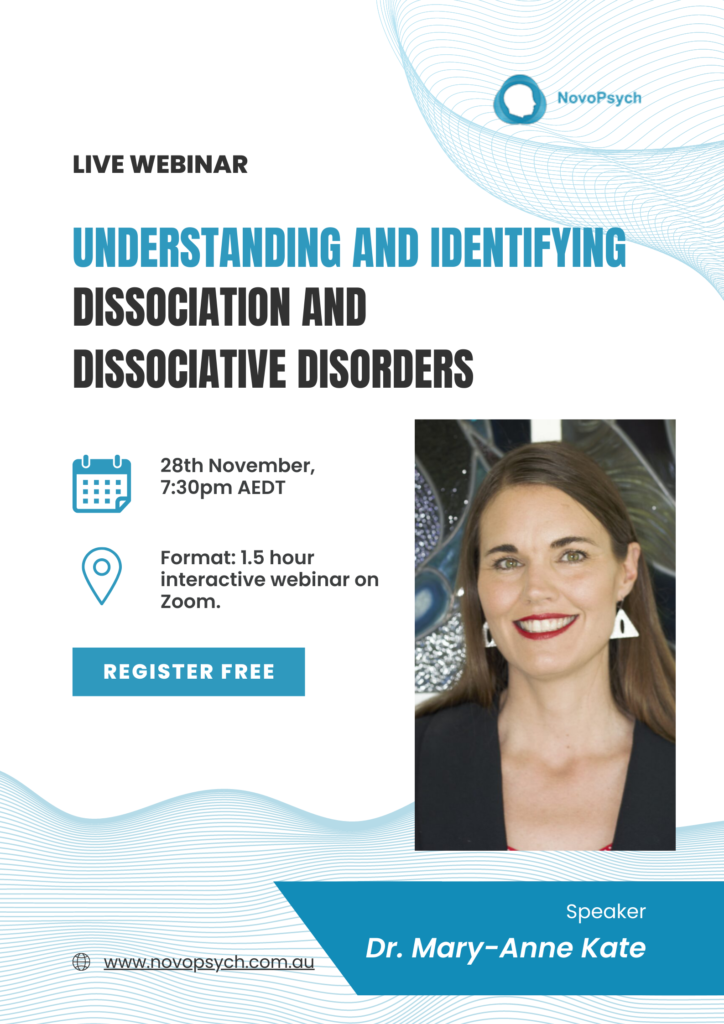Learning Objectives:

Dr Mary-Anne Kate is a psychology lecturer and researcher specialising in interpersonal trauma, attachment, and post-traumatic disorders. Mary-Anne currently lectures on the Master of Professional Psychology and Bachelor of Psychological Science programs at Southern Cross University and has previously taught on the Master of Mental Health. She developed the master’s unit on psychological assessment and psychopathology. She is a Scientific Committee member of the International Society for the Study of Trauma and Dissociation (ISSTD), where she also teaches the introductory course on dissociation.
Mary-Anne developed the Multidimensional Inventory of Dissociation – 60 item version (MID-60) to screen for dissociative symptoms, DSM-5 dissociative disorders and PTSD. The MID-60 is the screening tool recommended by Eye Movement Desensitization and Reprocessing (EMDR) trainers throughout Europe, North America, and Australia, as well as Harvard Medical School.
Contact
Contact: [email protected]
Publications and MID-60 resources are available via Researchgate: https://www.researchgate.net/profile/Mary-Anne-Kate
Webinar Summary
Dissociation is a defense mechanism that enables a person to cope with overwhelming or traumatic experiences. It is one of the most common mental health diagnoses with one in ten people meeting the criteria for a dissociative disorder during their lifetime. It is also one of the most misunderstood and overlooked mental health presentations. Many individuals with a dissociative disorder have experienced complex trauma during childhood and the majority have comorbidities. These include depression, anxiety, PTSD, OCD, bipolar, eating disorders, borderline personality disorder, psychosis, and somatic, sleep, and substance use disorders. The comorbid disorders are most often the focus of treatment, yet the individual is unlikely to make significant progress unless the underlying dissociation is identified and addressed.
In this webinar, Dr Mary-Anne Kate will explore dissociation and the dissociative disorders in adults and adolescents, including the prevalence, causes, and diagnostic features. She will introduce participants to the Multidimensional Inventory of Dissociation – 60 item version (MID-60) for adults and the adolescent version (MID-60-A). Mary-Anne will then guide participants through a series of case studies, including dissociative identity disorder, other specified dissociative disorder, dissociative amnesia, depersonalization disorder, and PTSD – dissociative subtype, to demonstrate the scoring and interpretation of the MID-60.

NovoPsych’s mission is to help mental health services use psychometric science to improve client outcomes.
© 2023 Copyright – NovoPsych – All rights reserved